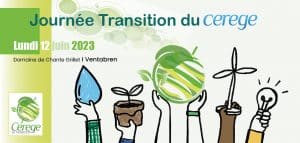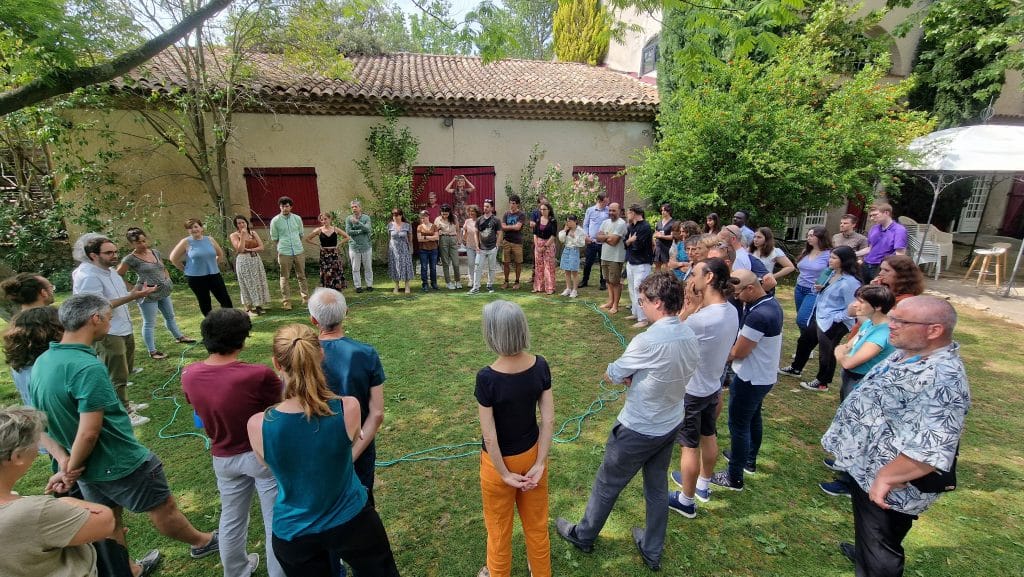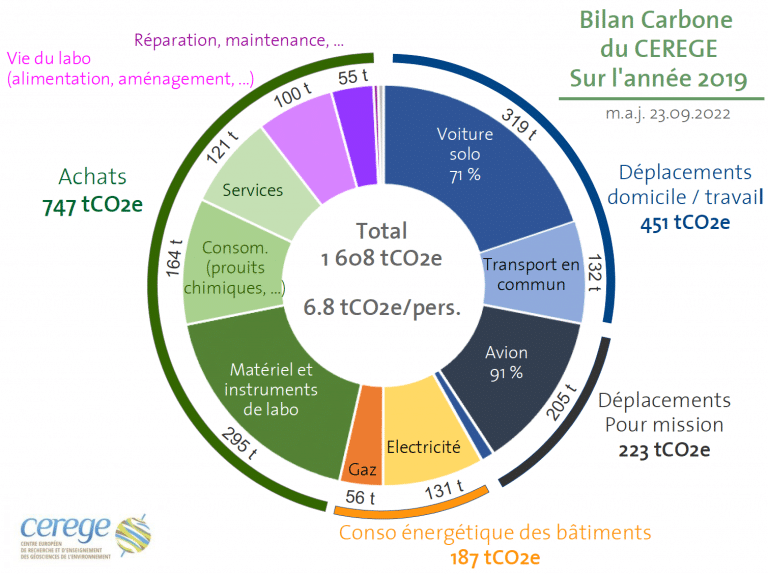Eco-responsibility Committee
Created on 1 January 2024 as a continuation of CEREGE's "Cellule Verte" (2019), the eco-responsibility committee has set itself the goal of reducing the environmental impact of the laboratory's professional activities while maintaining, and even improving, the quality of working life and the quality of scientific production and services.
Today, she is developing and supporting the action plan backed by management to rally staff around its environmental transition project (our commitment to eco-responsibility).

Thanks to the funding allocated in 2023 by the CNRS "Low Carbon" programmeCEREGE's eco-responsibility committee is benefiting from a year's facilitation support from trainer Anouck Hubert.
The aim is to implement a participatory process with all CEREGE staff to define the approaches and actions that will win the support of the majority.
How the commission works
The eco-responsibility committee is made up of 9 members, who are responsible for monitoring 9 themes:
- Internal supervision and links with the outside world
- Setting up the charter
- Indicators
- Research and innovative approaches
- Teaching
- Mobility
- Material Sobriety
- Life in the lab
- Buildings and energy/water
The members set up "experimentation areas" around a problem to be solved or an action involving other laboratory staff.
The members of the eco-responsibility commission actively participate in the networks of sustainable development representatives of the AMU, CNRS and IRD supervisory bodies, attend their training courses and are involved in the "Ma Terre en 180 Minutes" network, enabling them to run workshops at major events.
Project managers : I. Schimmelpfennig, X. Giraud
Members : C. Levard, O. Cavalié, J. Couturier, Y. Fagault, L. Monnier, P. Chaurand, A.-L. Jourdan, B. Collin
CEREGE wins CNRS award for its low-carbon project

Actions implemented since 2019
Awareness raising
. Posters on different themes (digital, heating, waste, energy consumption, etc.)
. My Earth 180 Minutes" global session (~100 participants)
. Participation in the "My Little Planet" game (24 participants)
. Presentation of the BEGES
. List of recommended eco-responsible/ERS caterers...
Mobility
. Bike shelter project
. Encouraging energy-efficient travel (public transport, cycling, car-sharing)
. Interactive map of the region for car-pooling contacts
. Distribution of Klaxit and Caros car-sharing applications (AMU action)...
Waste and re-use
. Encouraging the sorting of different types of waste with the installation of dedicated receptacles
. Reorganisation of waste from events
. Setting up a composter
. Setting up a joint online "barter" with the other OSU Pythéas labs...
Energy
. Energy audit of premises (2023-2024)


